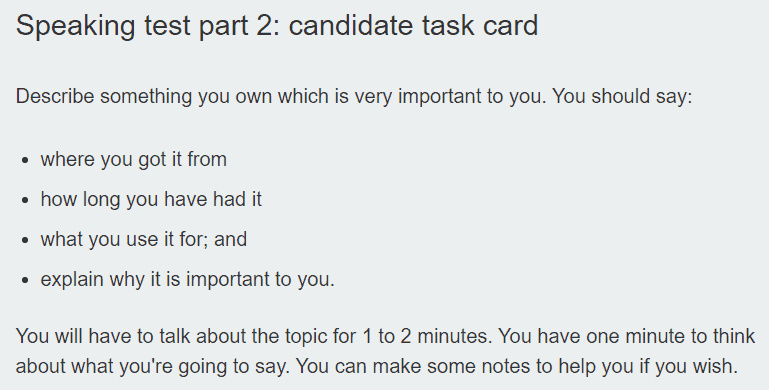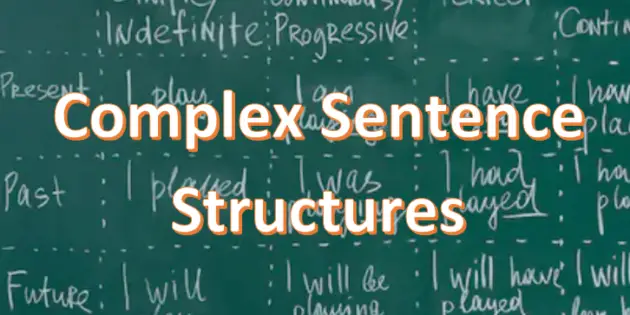Howdy people! Do you want to smash the IELTS test? The let me show you how complex sentences are used in IELTS so you can use them too!
Complex sentences are used in IELTS writing and speaking anytime you want to link more than one idea or piece of information together in a sentence. Normally you would want to do this when you are explaining something, expanding on an idea, describing something or expressing a lengthy opinion. These are all things that you may have to do at some point in your IELTS Writing Task 2 essays, or in your Speaking Test.
We are going to look at complex sentences in IELTS writing first and then speaking. As a former IELTS examiner, I don’t like the way IELTS take so much money off people so let’s get this thing done right and smash your test next time!
How Complex Sentences Are Used In IELTS Writing?
Normally, these complex sentences would be used in essay body paragraphs after a main topic sentence. They are used here primarily to develop an idea. Developing an idea is one of the key marking band criteria for Task Achievement so it is important to do this for both Task Achievement and to show your range of grammar.
Please note, you do not have to think about deliberately inserting long complicated looking sentences in your writing. If you just write your essay normally you will always end up using complex sentences naturally as they are actually not that difficult or unusual to write, or learn how to write.
Let’s look at a sample band 9 essay to see how complex sentences are used in IELTS writing. I have labeled each sentence in the model answer as either simple, compound, or complex so you can see the variety of sentences that are used. Here’s the question and answer.
The large amount of time and money that is spent on conserving wildlife would be better spent on improving the lives of humans.
To what extent do you agree or disagree?
MODEL ESSAY ANSWER
In recent years a lot of time and money has been spent on attempting to preserve endangered animals rather than be used to aid human needs (complex). Personally, I disagree with this philosophy and the remainder of this essay shall outline my reasons for this position (compound).
Firstly, the value of a human life is greater than the value of an animal’s life (simple). Every person that has ever been born has had a loving mother, or father who cared deeply about them (simple). Most people also enjoy close relationships with other relatives and friends too (simple). Therefore, when any human life is destroyed it impacts upon more than just that one individual (simple). However, when an animal dies the impact is not the same because animals do not possess the same level of consciousness as humans (complex). For instance, humans hold funerals and gather to mourn, whereas animals generally continue with their lives as normal (complex).
Furthermore, if a particular species needs help to survive then surely it is only a matter of time before it becomes extinct anyway (complex). The Giant Panda is a great example of an animal that has basically been prevented from becoming extinct by the efforts of humans alone (simple). The panda itself is poorly adapted to life in the world’s current environment and any attempts to preserve this beast will eventually be proved futile (compound). The Chinese government spends over $12 million US dollars per year trying to keep alive a species which will probably eventually die out anyway (complex).
In conclusion, human lives are of greater importance and species that are dying out should be allowed to do just that (compound). Governments around the world need to recognise the importance of human lives over animal lives (simple).
Here is the sentence breakdown for that model band 9 essay:
- Total sentences = 14
- Number of simple sentences = 6
- Number of compound sentences = 3
- Number of complex sentences = 5
- Word count = 281
So, that is actually a pretty ideal mix to end up with. We have a nice range of sentence types which fulfills the band 9 criteria for grammatical range and accuracy where it asks for: ‘a wide range of structures used with full flexibility and accuracy’.
So, there you go, that is how complex sentences are used in IELTS writing task 2 essays.

How Complex Sentences Are Used In IELTS Speaking?
Similarly, in IELTS speaking complex sentences are used anytime you link more than one piece of information together in a sentence. You will naturally be doing this all the way through your speaking tasks and it is not something you should get worried about, you will do it naturally anyway.
Using complex sentences will demonstrate to the examiner two main things. Firstly, it will show you have a good grammatical range and secondly it will help you speak naturally for longer periods of time, such as in part 2 of the test.
It is important to note though that you should be using a mix of both very simple short sentences and longer complex sentences throughout the text.
For example, if the examiner asks you where you live and you answer, ‘I currently reside in London with my family, however, I would like to move out to live with my friends soon and furthermore I want to buy my own house in the near future.’
This complex sentence is not only providing unnecessary information but it is inappropriate and not natural to respond at such length to such as simple question.
‘I live in London in a small apartment’. Is a fine sentence. The examiner will ask follow up questions if they so wish.
Let’s look at a few examples from different parts of the speaking test to show how complex sentences are used.
Here is a short clip from a band 9 student answering the following question:

Candidates band 9 response:
“Something I own which is very important to me is my collection of photo albums (simple). There are actually several albums and they have been compiled over a number of years, since I was born in fact, so, over twenty years now (complex).
The albums were put together over the years by my mum (simple). She was great at taking photos and collecting and recording anything and everything that we did throughout our life (compound). This means that the albums are full of things like certificates from school, paper clippings of my sporting achievements, and badges from my days in the cub scouts (complex).
I don’t really use the albums for anything as such, but I do look at them from time to time and it reminds me of how much I am loved and cared for by my family and it also reminds me of all the happy times we have all spent together as a family (complex). Obviously, it is a really important set of albums for me (simple).
I would hate to ever lose them but if I did ever lose them then I know all the great times with my family are what made me the person I am today so I guess I would get over it and just try to make some more great memories to fill new albums with (complex).”
Here is the sentence breakdown for that model band 9 IELTS speaking part 2 response:
- Total sentences = 8
- Number of simple sentences = 3
- Number of compound sentences = 1
- Number of complex sentences = 4
As you can see there is a nice variety of sentences which effectively fulfill the band 9 criteria which asks for ‘use of a full range of structures naturally and appropriately’ (view full band criteria).
So, a full range means everything from simple to complex which that response clearly demonstrates and that is how to use complex sentences in IELTS speaking.
Finally, let’s answer a couple of common questions that IELTS candidates have about complex sentences.
How Can I Improve My Sentence Formation In IELTS?
In order to improve your sentence structure you first need to know what you are doing wrong if anything. What you need to do is write between 5-10 essays the more the better and then get them marked by a professional i.e. a teacher, or at the very least an educated native speaker.
What you want them to identify is the mistakes that you make time and again. Mistakes that you make so often that you can see that a pattern has formed.
These types of mistakes are called systemic mistakes and it is really important to identify them because if you can, then by understanding just this one mistake that you keep repeating you can then cut out all the mistakes you are making with that issue. This can have a major impact on the accuracy of your sentences.
For example, I taught one student who was stuck on a band 5.5 for writing and they needed a 6.5 . I took a look at their essays and I could see they were repeating the same mistakes with pronouns, they were confusing the words: it, them, and they, and they were getting the word order wrong when they were using the present perfect tense.
Obviously, these two issues led to a really confusing essay. However, after they worked through these issues and really understood what they were doing wrong they were able to write much more accurate essays. Indeed, 2 months later when they took the test they got a band 7 in writing such was their improvement.
So, the message is clear, if you want to improve your sentence formation find out what mistakes you keep repeating and correct those mistakes first! It will have a dramatic impact on your band score.
OK folks, that’s enough for this blog post. I hope you found it useful, please like and share and drop and question underneath, have a great day!
Further reading: The Potential of Sentence Trees in English Grammar Teaching



